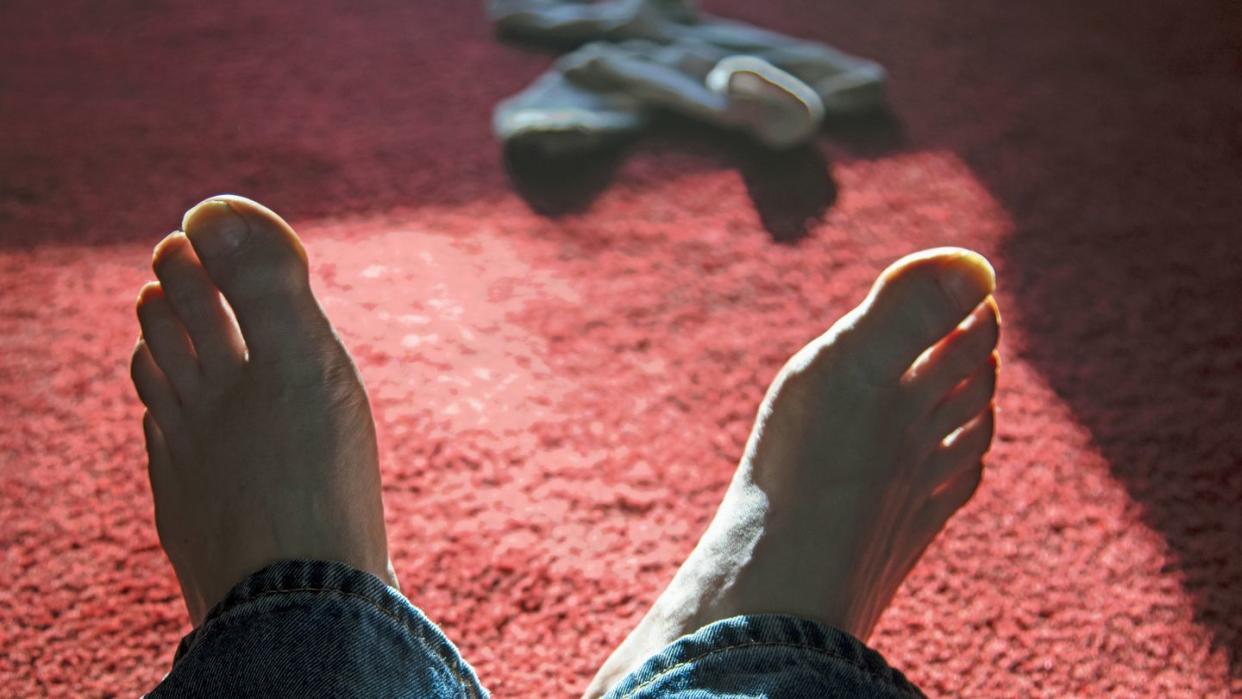Experts Say Your Smelly Feet Could Indicate Something More Serious

[table-of-contents] stripped
The common courtesy of kicking off shoes at the front door of a friend’s house is a smelly feet sufferer’s worst nightmare. The floors may go scuff-free, but at the cost of the release of an odor strong enough to take out a small army—one perhaps that no powder, foot cream, or perfume can mask. Some body odor is completely normal, especially after exercise, but if you feel like your feet might be unusually stinky, this one’s for you.
Meet the Experts: Nicholas R. Butler, D.P.M., A.A.C.F.A.S., assistant professor at Kent State University’s College of Podiatric Medicine and Jodi LoGerfo, D.N.P., A.P.R.N., a doctor of nursing practice certified in dermatology and family medicine.
We spoke to experts to break down why smelly feet happen, and how to banish any unwanted smells (especially ones that might indicate a more serious health issue). Read on to find out exactly why your feet might smell so bad, per experts.
What causes smelly feet?
The one word answer is: sweat. But there are layers. You see, sweat “is usually odorless,” says Jodi LoGerfo, D.N.P., A.P.R.N., a doctor of nursing practice certified in dermatology and family medicine. What causes it to become rank is usually overactive sweat glands and their secretions mixing with bacteria on the skin, adds Nicholas R. Butler, D.P.M., A.A.C.F.A.S., assistant professor at Kent State University’s College of Podiatric Medicine. The medical term for chronic smelly feet is localized bromhidrosis, which is diagnosed in people whose foot odor “is exceedingly noticeable and has a negative effect on the individual’s life,” LoGerfo explains. “Bromhidrosis can affect someone’s self-esteem, social interactions, and quality of life,” she adds.
Other factors that may worsen foot odor are fungal infections like athlete’s foot, moist or ill-fitting footwear and socks that prevent proper ventilation, and poor hygiene habits. Additionally, LoGerfo says some people may have more or larger sweat glands, increased sweat volume (a.k.a. hyperhidrosis), and, bromhidrosis can also be genetic.
How to get rid of smelly feet (home treatments)
It’s all about keeping the area as dry and clean as possible. Here are some tips from Dr. Butler and LoGerfo for doing just that:
Change your socks daily, or even twice a day.
Wear shoes with apt ventilation and socks made of moisture-wicking material.
Bathe daily, and wash your feet with antibacterial soap.
Avoid not wearing socks with shoes.
Remove sweaty clothing as soon as possible.
Regularly exfoliate your feet using a pumice stone or scrub.
Use a topical antiperspirant containing aluminum salts, which help balance the skin’s pH.
Seek out a dermatologist for Botox injections, which can help control sweat gland activity.
Trim toenails regularly to reduce infection risk.
Do smelly feet ever mean something else is going on?
The biggest risk smelly feet present is that of infection, which can open the door to a slew of other health issues, depending on how long it’s left untreated. LoGerfo stresses that the risk of infection is higher in those who have diabetes, skin diseases, or those who are obese. If you notice any irritation, swelling, or other signs of infection on or around your feet, or persistent foot odor after following the above tips, Dr. Butler says it’s worth seeking medical attention.
You Might Also Like

